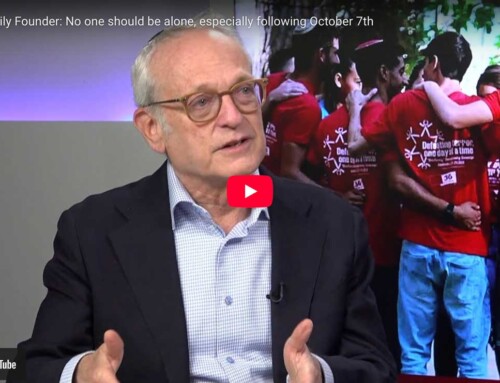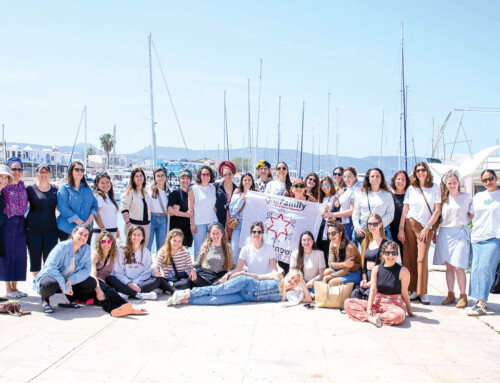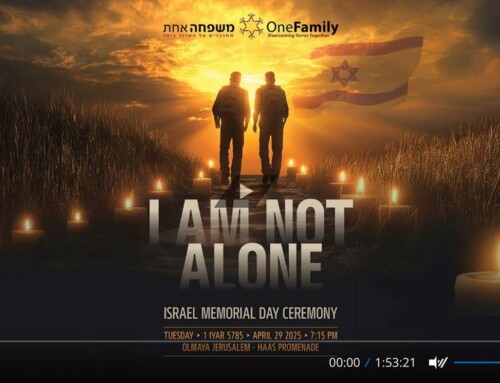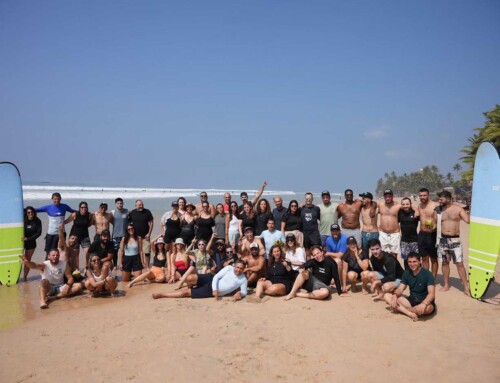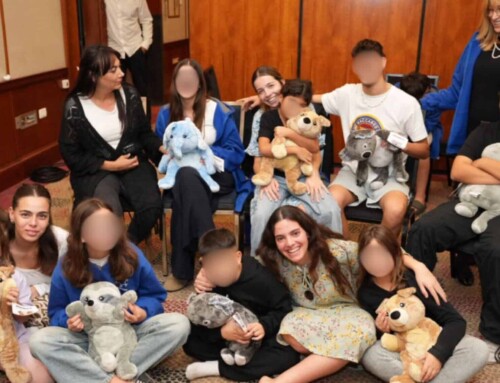Original source: Article published in United with Israel – by, Chelsea Polaniecki
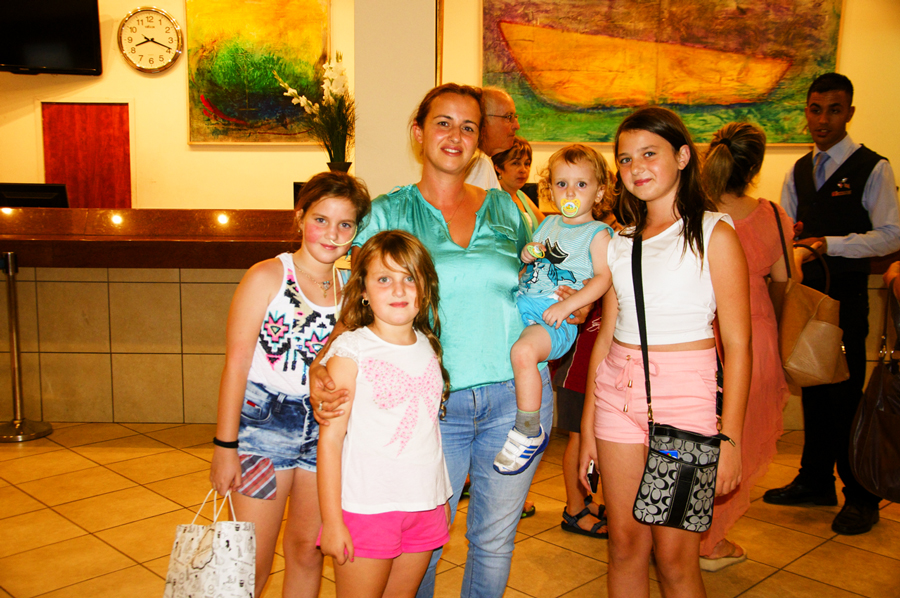
Carmit Edel and her family taking a break courtesy Onefamily while her husband serves in the air force. They live in the South. A qassam rocket landed next to them at a restaurant two years ago; now one daughter suffers from post trauma and developed a rare disease that requires a feeding tube. (Photo: Howie Keenan)
During the tough times, it is always easier to turn and run. But as the sirens ring out and the rockets continue to fall, I cannot bear the thought of being anywhere but here.
OneFamily – the “family” of victims of terror – brought a group of 300 from various areas in Israel’s south to Eilat and Tiberius for therapeutic retreats. These families have all experienced the loss or injury of a family member as a result of terror in Israel.
Upon their arrival, they celebrated the sun and the fresh air. They relaxed for the first time in ages. They took a break from the constant fear that they would fall victim to terror once again, as rockets continued to fall elsewhere in Israel.
The families sat poolside, swam leisurely, participated in hydro-therapy and other forms of therapy.
Suddenly, we heard something in the distance. Everything stopped.
“It’s just the music,” I comforted them. “There won’t be a siren here. You’re here to get away from those.”
As it turned out, I had lied. Hours away from their homes in Sderot, Ashkelon, Ashdod, and Beer Sheva, victims of terror were forced to seek shelter, once again, heeding a wailing siren at 1:51 a.m. and running for cover in Eilat o,f all places. It seemed as though the violence and the terror was simply inescapable.
Flashbacks of their loved ones injured by shrapnel, or worse, haunted them as they ran. They remembered, as they do with every siren, the pain they endured in the past, hoping that this siren will not lead to a similar ending.
Prior to that night, I personally had experienced three sirens: two in Jerusalem and one in Migdalim. I was shaken by the familiarity of my fourth siren in Eilat. The slow rising and falling sound of the siren still caught me by surprise, making my heart pound out of my chest and my limbs shake uncontrollably.
I had imagined that those who had experienced numerous sirens before would react differently. I imagined that they would be calm and know precisely where to go and what to do. I assumed it would be routine for them, a mundane part of their lives, perhaps something they had grown used to. However, that was my second mistake.
The families found themselves in a panic, running scared as they searched for shelter. In the comfort of their own homes, they knew where to run and how many seconds it would take to get there.
But this was different. Here, their chaotic routine was broken.
A mother and her teenage daughter held a door open guiding all into the stairwell. Some began running up the stairs, some ran down, and still others stayed put. Children screamed. Everyone had fear in their eyes. Shock, sadness, and pain permeated the air. They worried that their past was not behind them, that someone was about to get hurt.
When the siren was over, I was still shaking, my heart was still pounding. The mothers in the group gained their composure the quickest, taking head counts of their children and dashing back to their rooms to call family members back home, assure them that they were safe, trying to beat the news reports so as not to leave anyone worried.
Though they came to Eilat to relax and recuperate, no one slept that night.
These families live in constant fear wherever they go. Terror, rockets, and trauma are always present in their lives. And yet, despite the terrible trauma and stress, they bounce back, they move forward. For me, they are an inspiration – their resilience and dogged determination to survive and thrive is simply astounding.
Every time I asked someone where they would move if they had the chance, they looked at me quizzically, implying that the question itself was silly. They love their neighborhoods in Ashdod, Ashkelon, and Beer Sheva, and have no intention of moving anywhere.
Interestingly, their follow-up question to me was always about whether or not I planned on making aliyah. And somehow, I found it nearly impossible to say no.
During the tough times, it is always easier to turn and run. But as the sirens ring out and the rockets continue to fall, I cannot bear the thought of being anywhere but here.
My connection with the Land of Israel has always been strong, but there is an added dimension now. I feel protective of the Land and its people. I want to preserve the image of this beautiful nation. I want to minimize loss and maximize pride in our culture, one based upon building rather destroying.
But I can only do so from within. And so, I want to stay right here.

